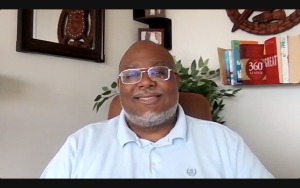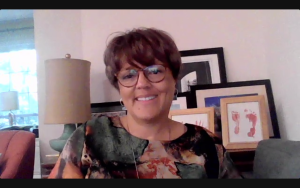Find out in our guest blog provided by Fern Hernberg from Brighter Strategies
(A version of this article appeared on the Brighter Strategies blog in July 2022.)
Low pay, little opportunity for advancement, and a lack of employer respect are the main reasons employees quit their jobs last year, according to a February 2022 PEW Research Center survey. Childcare issues, little flexibility, and a lack of good benefits followed closely behind.
Indeed’s February 2021 findings corroborate these trends. Here are some of the top reasons employees leave their jobs:
- Needing more of a challenge
- Looking for a higher salary
- Feeling uninspired
- Wanting to feel valued
- Seeking a better management relationship
- Searching for job growth and career advancement
Second, to wanting more money, a need for connection is the most common driver of employee attrition. This blog article will explore ways to help employees feel connected to the organization in the post-pandemic workplace.
Time is of the essence
Several years ago, HR trends showed a dip in employee engagement and an increase in attrition around 18 months post-hire. Much has changed since the pandemic, and although we’ve yet to see the longer-term impacts on the workforce, one new trend is emerging: Employers have less time than ever to engage employees.
In years past, employers assumed that once they had a new hire hooked, that employee would stick around for at least a year or so to build their resume. The pandemic taught the workforce that time is precious. Today people will leave a company at any time if they believe the fit is poor. Some employees abandon roles weeks and even days after their start dates, and some never even show up on their first day!
Considering these employee attrition trends, consider the following tactics for engaging and retaining new talent today.
Retain employees differently from how you attract them. What secured your new hire is not going to keep them. Employers are attracting employees through flexible work, competitive salary and benefits, and claims of work-life balance. Employees will choose to stay when they feel connected to their peers, manager, organization, and work.
Start engaging employees at recruitment, not onboarding. Show candidates how your organization is one worth their investment even before they accept a new job. In a world where many HR processes are automated, organizations that take a personalized approach to hiring will make a strong impression. For example, automating tax form completion is efficient, but having a personal conversation about an employee’s start date elevates the connection experience. Handwritten notes, phone calls to check in, and introductions to fellow employees are ways to draw them in before they start.
Consider connection above all else. Retaining employees is not complex; it’s about getting the basics right. Building connection means ensuring new employees feel a tie to their work, understand how they contribute meaningfully to the organization’s mission and have a sense of belonging among their peers. People must feel these connections the second they walk in the door. And in the virtual workplace, employers must work harder to make and keep relationships. Often this means entirely revamping onboarding for greater effectiveness.
Elevate empathy throughout the organization. Understanding and empathizing with others is part of developing a genuine connection with them. What do they care about most? What are they committed to outside of work? While many organizations talk about providing work-life balance, how empathy shows up on the job is often a different story—and one that matters.
Show employees their future. The connection goes beyond the here and now of a current role. Employers must help candidates, and new hires see their future at the organization. Professional development opportunities are integral to an employee’s choice to remain in their role. If individuals understand how the job provides career advancement opportunities beyond their current work, they will be more motivated to stay.
Final thoughts
People today are looking for work that will be more satisfying to them in the long run—they are looking for meaning. More than half of employees who quit their jobs in 2021 did so to change careers, explains Bill Murphy in his recent Inc.com article. As your organization increasingly picks up career-switchers in the coming months, help these people know the connection in the first moments of their new career with you. Be willing to support them through the transition and connect them to that deep purpose they are seeking.
Share This Page:










